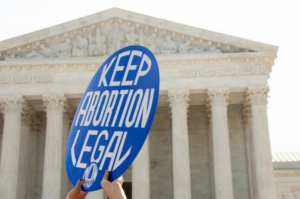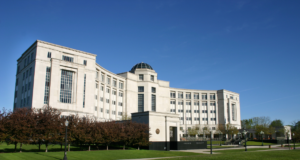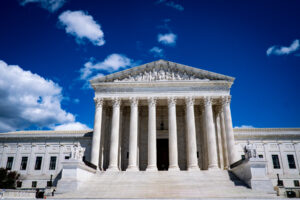West Coast union workers ask U.S. Supreme Court to get dues back
2 min read
After facing four appellate losses, a group of public-sector workers is asking the nation’s high court to get their dues back from its former unions.
If successful, thousands of workers could see refunds of their compulsory paycheck deductions.
With free legal representation from the nonprofit National Right to Work Legal Defense Foundation and the Freedom Foundation, California-based public workers William Hough, William Brice and two others from Oregon asked the U.S. Supreme Court to hear their four cases as one challenge.
Hough, a worker at the Santa Clara Valley Transportation Authority (VTA), filed his complaint in 2018 against the Service Employees International Union (SEIU) Local 521, and the Attorney General and governor of California. Brice is a professor at California State University Dominguez Hills and filed against the California Faculty Association in 2018. They are joined by two other public employees of the state of Oregon.
“For decades, union bosses dipped into the paychecks of many workers who were not union members and used their money to finance activities those workers fiercely opposed,” National Right to Work Legal Defense Foundation President Mark Mix said. “They continued seizing dues despite workers’ pleas and warnings from the Supreme Court that their actions were likely unconstitutional.”
All four allege their unions took dues from workers’ paychecks before the Supreme Court’s 2018 decision in Janus v. the American Federation of State, County and Municipal Employees Council 31. The landmark decision ruled union dues as a condition of public-sector employment violated the First Amendment.
The respective unions challenged in the lawsuit did not respond to requests for comment.
Public-sector unions saw fair share fees, which unions took from nonunion workers justified by the work they were bound by law to perform, largely go by the wayside. This challenge, however, is retroactive.
The lawsuits are also class action, meaning union workers in a similar situation could claw back previous dues if justices side with the workers. Attorneys estimate the number to be in the thousands.
“The Supreme Court did not create a government employee’s First Amendment right not to be forced to fund a union as a condition of employment,” said Freedom Foundation’s Chief Litigation Counsel Eric Stahlfeld. “Rather, the Court affirmed in Janus v. AFSCME what it had been signaling to unions in three previous cases starting with Knox, that the right had always existed and simply needed to be recognized.”
Mix said each state’s respective statute of limitations would protect the unions from returning the bulk of the dues.
“Because of the statute of limitations, a ruling in these workers’ favor would only force union bosses to return a small portion of the billions of dollars nationwide they unlawfully stole from public employees’ paychecks,” he said.
A similar challenge to retroactive refunds for a worker in Illinois is scheduled to be considered next week.
This article was originally posted on West Coast union workers ask U.S. Supreme Court to get dues back







